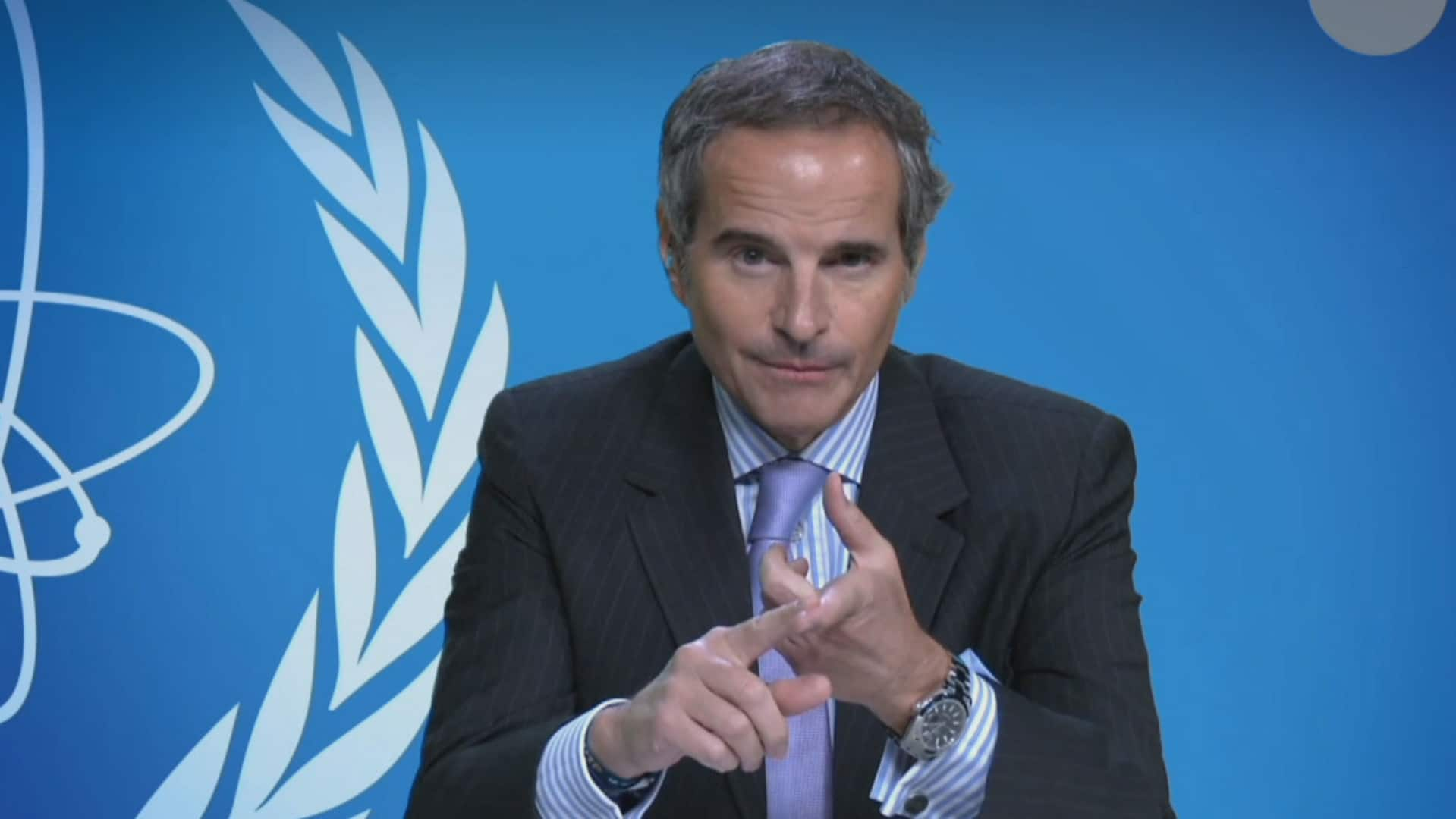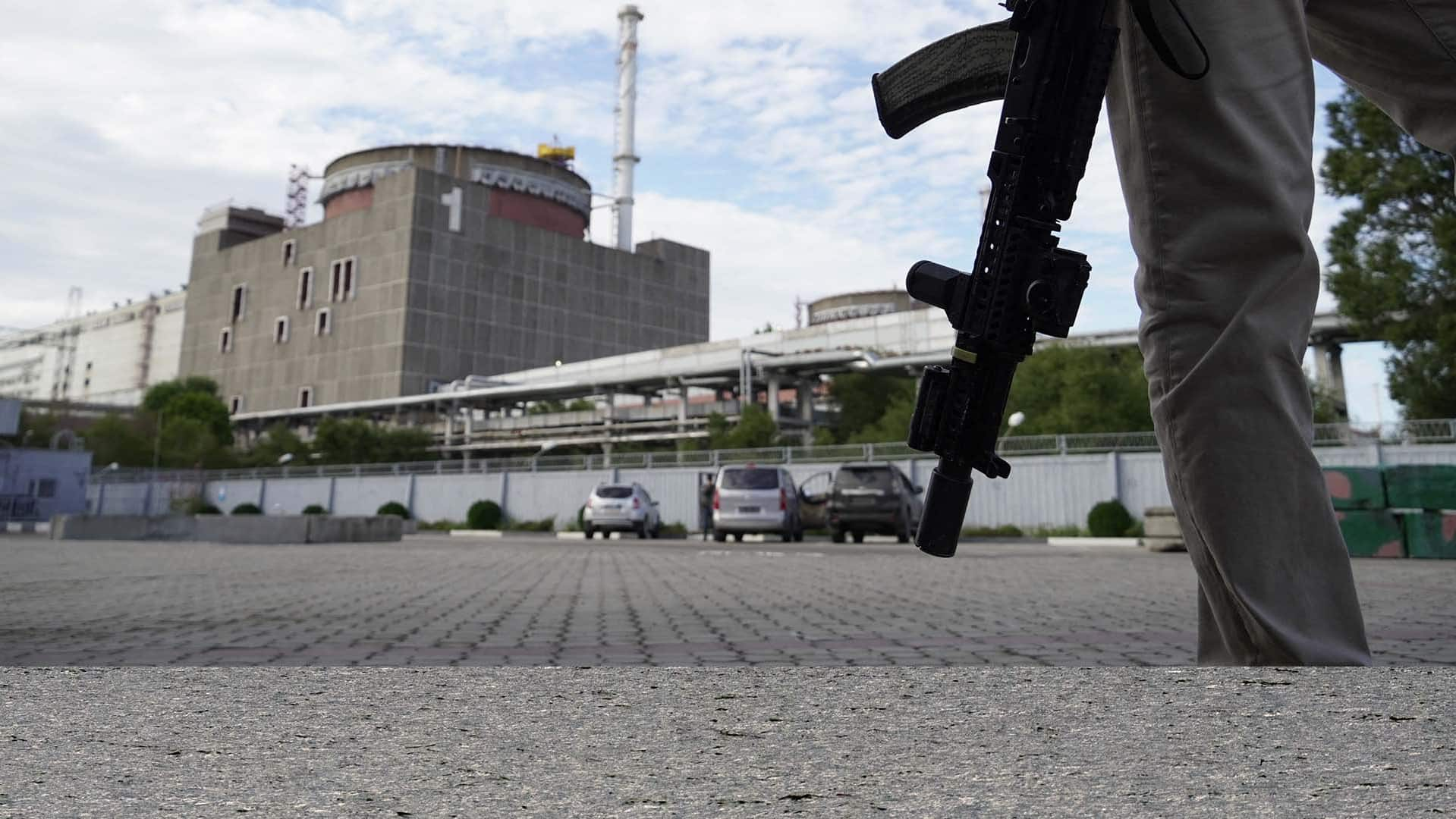
Russia and Ukraine on Tuesday accused each other of plotting to stage an attack on the Russian-held Zaporizhzhia nuclear power station, long the subject of mutual recriminations and suspicions.
Ukrainian President Volodymyr Zelenskyy said he told his French counterpart, Emmanuel Macron, about Russian “dangerous provocations” at the plant in southeastern Ukraine.
Russian troops seized the station, Europe’s largest nuclear facility with six reactors, in the days following the Kremlin’s invasion of Ukraine in February 2022.
Each side has since regularly accused the other of shelling around the plant and risking a major nuclear mishap.
Renat Karchaa, an adviser to the head of Rosenergoatom, which operates Russia’s nuclear network, said Ukraine planned to drop ammunition laced with nuclear waste transported from another of the country’s five nuclear stations on the plant.
Rosemary Barton Live speaks with the director general of the International Atomic Energy Agency, Rafael Grossi, who says he’s alarmed by the threat of a nuclear accident at the Zaporizhzhia power plant ahead of Ukraine’s planned spring counteroffensive.
“Under cover of darkness overnight on 5th July, the Ukrainian military will try to attack the Zaporizhzhia station using long-range precision equipment and kamikaze attack drones,” Russian news agencies quoted Karchaa as telling Russian television. He offered no evidence in support of his allegation.
Zelenskyy tweeted that he had told Macron in a telephone conversation that “the occupation troops are preparing dangerous provocations at the Zaporizhzhia [nuclear plant].”
He said he and Macron had “agreed keep the situation under maximum control together with the IAEA,” the UN’s International Atomic Energy Agency.
A statement issued by the Ukrainian armed forces quoted “operational data” as saying that “explosive devices” had been placed on the roof of the station’s third and fourth reactors on Tuesday. An attack was possible “in the near future.”
With Russia launching fresh military attacks in southern Ukraine, the UN’s top nuclear safety official is desperate to negotiate a safety zone around the Zaporizhzhia nuclear power plant. But Ukraine and Russia both seem reluctant.
“If detonated, they would not damage the reactors but would create an image of shelling from the Ukrainian side,” the statement on Telegram said. It said the Ukrainian army stood “ready to act under any circumstances.”
Zelenskyy and the Ukrainian military also provided no evidence for their assertions.
None of the reactors at the plant is producing electricity.
In his nightly video message, Zelenskyy said Russia was planning to “simulate an attack on the plant. Or they could have some other kind of scenario.
“But in any case, the world sees — and cannot fail to see — that the only source of danger to the Zaporizhzhia nuclear power plant is Russia. And no one else.”
UN calls for demilitarized plant
The IAEA, the UN’s nuclear watchdog, has been trying for more than a year to clinch a deal to ensure the plant is demilitarized and reduce the risks of any nuclear accident.
IAEA Director General Rafael Grossi has visited the plant three times since the Russian takeover but failed to reach any agreement to keep the facility safe from shelling.
Zelenskyy adviser Mykhailo Podolyak told Ukrainian television that Grossi had proved ineffective in trying to uphold safety at the plant. “Any disaster at Zaporizhzhia could have been prevented if [Grossi had been] clear straight away,” Podolyak said, accusing the IAEA of flipflopping in its approach to the problem.
“That is, instead of this clowning around that this man is doing. And when there is a disaster, he will say they had nothing to do with it and warned about the dangers.”

